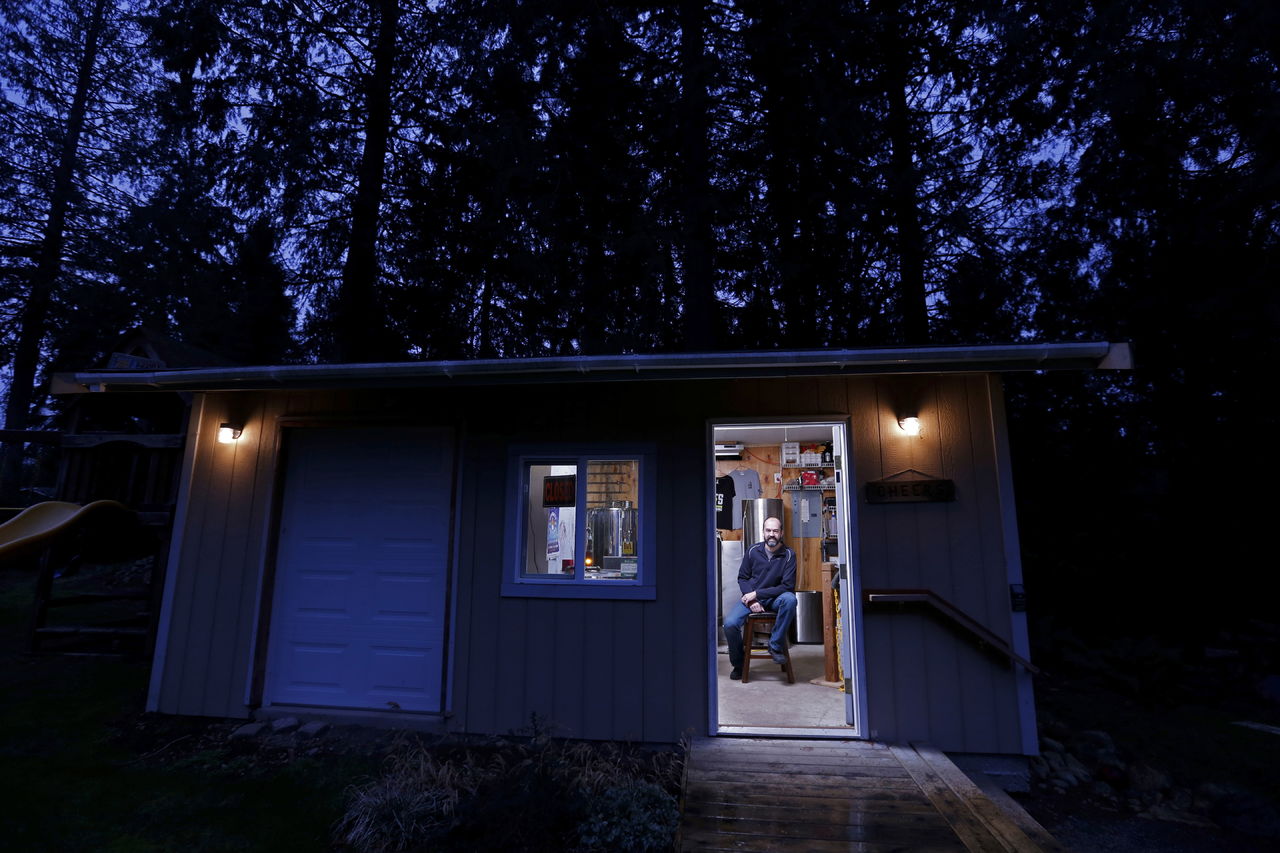EVERETT — Snohomish County is looking to shape the landscape for craft breweries, distilleries and wineries operating in rural areas.
There’s not much on the books telling owners of small-scale alcohol businesses what they can and can’t do. In Snohomish County, as in much of Washington, it’s terra incognita as government regulators catch up to expanding industries.
“I think what we’re trying to do is strike balance,” said County Councilman Brian Sullivan, who has personal experience as a brewer.
A public hearing is set for 10:30 a.m. March 9 in County Council chambers.
The goal is to create business opportunities in agricultural areas while protecting neighbors from side effects such as noise, traffic and parking. Similar concerns arose when the County Council set rules for the recently legalized marijuana industry.
Until new rules are in force, commercial alcohol production, sampling and sales are only allowed in rural parts of the county as a home-based business. Those existing rules place strict limits on size and production.
The proposed regulations would address stand-alone commercial operations with production facilities, retail sales and tasting rooms.
Businesses would be limited to 4,000 square feet and a maximum of 50 people at a time outdoors. They could operate from 10 a.m. to 8 p.m. daily for a maximum of 30 hours per week. Buildings would have to be at least 35 feet from the property line of any adjacent residential zones.
Smaller operations, of up to 1,500 square feet, would be limited to 30 people at a time outdoors.
Other rules would govern parking, lighting and signs.
The proposed regulations would allow the alcohol businesses on agricultural land, which county planners refer to as Ag-10 zones. Same goes for rural industrial and business zones.
There’s likely to be pushback about allowing them in more densely populated rural neighborhoods known as R-5 zones. Those are areas where the county generally allows one house per five acres, with some leeway for business activities. Breweries, distilleries and wineries in R-5 zones would be limited to 20 hours of being open for business with the public each week. Even so, that doesn’t sit well with Councilman Terry Ryan.
“I can’t imagine this dovetailing nice with those neighborhoods,” Ryan said.
Ryan recalled the fierce opposition to marijuana businesses in rural neighborhoods such as Clearview.
“If it has negative impacts on families, that’s where I draw the line,” he said.
The county’s Agricultural Advisory Board and Planning Commission reviewed the proposed rules for rural alcohol businesses last year.
Ron Walcher started Skookum Brewery at his Arlington-area home before opening a stand-alone business near the Arlington Airport in 2012. Skookum’s success caused tension with neighbors before the move. Though his situation as a home-based business differed from what’s now under discussion, Walcher said clearer regulations should benefit business owners and neighbors alike.
“One of the most frustrating things about what happened to us is I felt the rules were being made or interpreted to fit me,” he said.
Three breweries are permitted as home-occupation businesses in unincorporated Snohomish County, said Jacqueline Reid, a supervisor in the planning department. They are: Foggy Noggin near Bothell, In The Shadow Brewing near Granite Falls and BrewBakers near Lake Stevens.
One winery, Quil Ceda Creek Vintners, operates in an R-5 zone near Snohomish. Planners characterize the winery as “farm-product processing use,” because the county has no category for alcohol businesses, Reid said.
The county has received four inquiries in as many months from people interested in new brewing or wine-making facilities in R-5 or Ag-10 zones, she said. Two inquiries expressed interest in opening to the public, another explicitly was not interested in opening to the public and the fourth didn’t specify.
Washington is home to more than 850 bonded wineries and 300 breweries. The numbers are growing.
“Over a quarter of the breweries in our state opened their doors within the past two years,” said Annie McGrath, executive director of the Washington Brewers Guild. “The vast majority of the breweries in Washington are small and independently owned.”
Distilling only became legal in Washington in 2008. In just over seven years, 115 have started up, including distilleries classified as craft, meaning that they use 50 percent or more Washington-grown ingredients, and non-craft. The Evergreen State now has more distilleries than any other state, said Jason Parker, president of the Washington Distillers Guild.
A half-dozen are located in Snohomish County.
“Most of the distilleries now are quite small,” Parker said. “They’re literally the first wave.”
The state regulates all commercial production of beer, wine and spirits regardless of quantity, said Mikhail Carpenter, a spokesman for the state Liquor and Cannabis Board. Home brewing and wine-making are allowed for personal use at home, but it cannot be sold or distributed. Home distilling is illegal; all distillers must be licensed by both the state and federal government.
Winemakers, brewers and distillers of all sizes must comply with environmental regulations that prohibit discharging waste water into on-site septic systems. In areas without sewer systems, that requires them to store effluent in tanks and haul it away for disposal.
Noah Haglund: 425-339-3465; nhaglund@heraldnet.com. Twitter: @NWhaglund.
Talk to us
> Give us your news tips.
> Send us a letter to the editor.
> More Herald contact information.

























